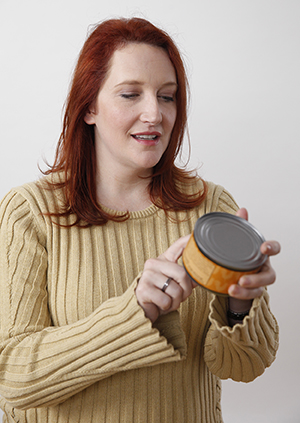Tips for Using Less Salt
Most people with heart problems need to eat less salt (sodium). Reducing the amount of salt you eat may help control your blood pressure. The higher your blood pressure, the greater your risk for heart disease, stroke, blindness, and kidney problems.

At the store
-
Make low-salt choices by reading labels carefully. Look for the total amount of sodium per serving.
-
Use more fresh food. Buy more fruits and vegetables. Select lean meats, fish, and poultry.
-
Use fewer frozen, canned, and packaged foods, which often contain a lot of sodium.
-
Use plain frozen vegetables without sauces or toppings. These products are often low-sodium or no-sodium.
-
Choose reduced-sodium or no-salt-added versions of canned vegetables and soups.
In the kitchen
-
Don't add salt to food when you're cooking. Season with flavorings such as vinegar, onion, garlic, pepper, salt-free herbal blends, and lemon or lime juice.
-
Use a cookbook containing low-salt recipes. It can give you ideas for tasty meals that are healthy for your heart.
-
Sprinkle salt-free herbal blends on vegetables and meat.
-
Drain and rinse canned foods, such as canned beans and vegetables, before cooking or eating.
Eating out
-
Tell the waiter you're on a low-salt diet. Ask questions about the menu.
-
Order fish, chicken, and meat broiled, baked, poached, or grilled without salt, butter, or breading.
-
Use lemon, pepper, and salt-free herb mixes to add flavor.
-
Choose plain steamed rice, boiled noodles, and baked or boiled potatoes. Top potatoes with chives and a little sour cream.
Reading food labels to limit salt
Beware! Salt goes by many other names. Limit foods with these words listed as ingredients: salt, sodium, soy sauce, baking soda, baking powder, MSG, monosodium, and Na (the chemical symbol for sodium). Some antacids are also high in salt.
Online Medical Reviewer:
Brittany Poulson MDA RDN CD CDE
Online Medical Reviewer:
Diane Horowitz MD
Online Medical Reviewer:
Heather M Trevino BSN RNC
Date Last Reviewed:
7/1/2022
© 2000-2024 The StayWell Company, LLC. All rights reserved. This information is not intended as a substitute for professional medical care. Always follow your healthcare professional's instructions.